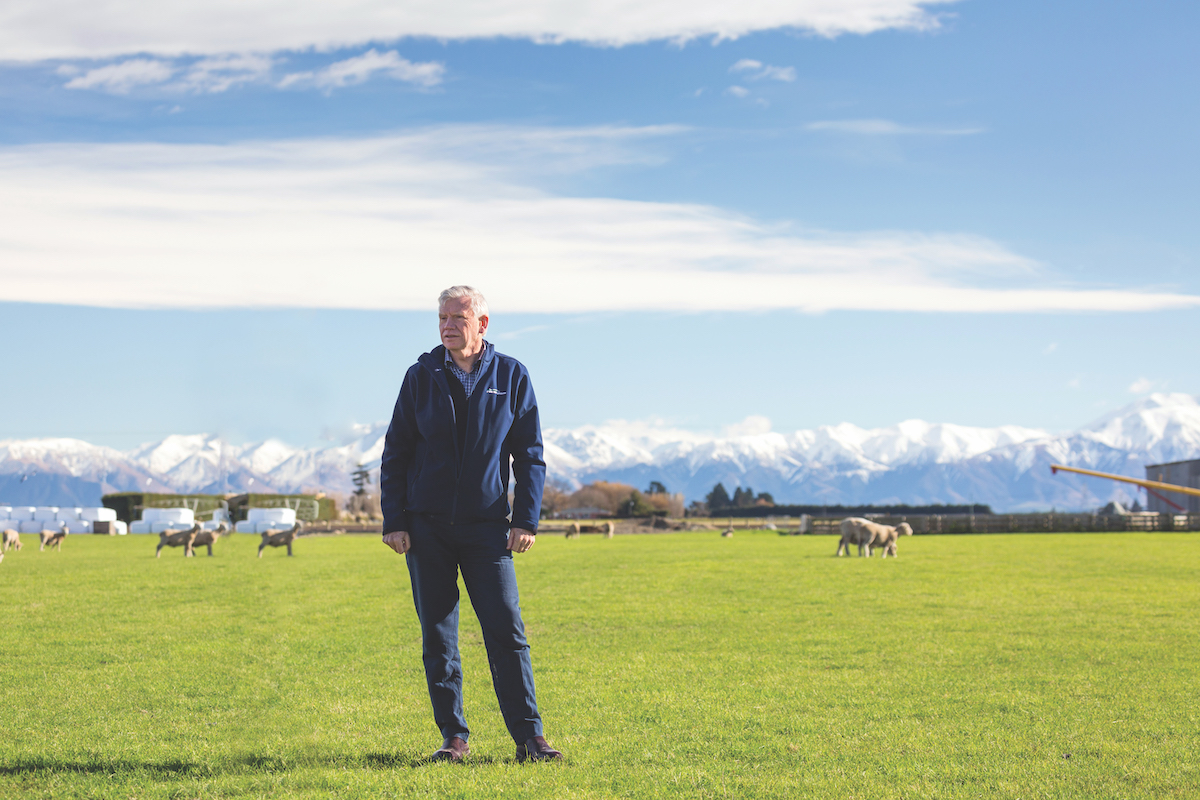Farming for the future: Ian Glasson
Backed by the company’s 170 years in New Zealand’s agriculture sector, CEO Ian Glasson is laying the groundwork for another successful century ahead for PGG Wrightson.
To understand PGG Wrightson’s (PGW) vital place in New Zealand’s agricultural landscape, CEO Ian Glasson believes it’s crucial to first understand the evolution of the country’s largest sector.
"Everyone knows New Zealand is famous for its sheep," he laughs. "It started out as a sheep farming nation but soon witnessed the rise of the dairy and horticulture industries, both of which have become hugely successful."
"Dairy cows have essentially reduced sheep numbers across the country, although this has raised concerns about the impact it’s having on New Zealand’s pristine environment, particularly in the south," Ian explains.

"Technology will pay a special role in New Zealand’s agricultural future. PGW is a small player in this, so while we’re not the people creating the technology, we do have the important role of making that technology accessible to farmers and equipping them with the knowledge they need to use it to drive results."
For more than 170 years, PGW has worked with New Zealand farmers and growers to service their on-farm needs, improve the productivity and profitability of their land, and help the country grow sustainably.
The NZ$1.2 billion (A$1.16 billion) operation spans farm merchandising, livestock, wool trading, horticulture, machinery, water services, and seed and grain marketing.
"Headquartered in Christchurch and Canterbury, the company is firmly ingrained in New Zealand’s rural scene. The core strength
of the business is our dedicated people and our longstanding relationships with New Zealand farmers," Ian explains.
"These relationships are multi-generational and that’s what makes PGW so strong. Through all the structural changes occurring in this industry, our number one priority is to maintain the level of trust and customer relationships we’ve built over the years. New Zealand’s agricultural history is iconic, and I want to see it prosper for another 170 years."
"New Zealand’s agricultural history is iconic, and I want to see it prosper for another 170 years."
Ian’s start in the agriculture industry is what he calls a happy accident. "I spent 16 years in oil and gas with ExxonMobil, followed by a short stint in the elevator industry, before I happened across the food and agriculture sector, working with companies including CSR Sugar and Goodman Fielder. I can tell you, moving from offshore oil and gas platforms to chickens and cows was quite a change," he laughs.
"Since taking on the CEO role at PGW in November 2017, my focus has been on building resilience and implementing a strategic review in the lead up to the sale of our seed and grain business. This sale allows us to focus on our NZ$800 million (A$776 million) rural services business, which leads the competitive market in New Zealand. We have a unique offering centred on customer service, technical advice, value for money and long-term value, and farmers are our focus."
In August 2018, PGW agreed to sell its market-leading seeds business to global seeds group DLF Seeds for a massive NZ$434 million (A$420 million).
"Our seeds offering is one of the most important services we provide for New Zealand farmers, so we’ve been working hard to facilitate that transaction," Ian explains. "We want to ensure it’s a win–win for our shareholders and for both companies, and that we continue to offer the best technology for farmers."
In its mission to protect the country’s natural environment, PGW balances issues of environmental, social, cultural and economic sustainability to uplift the country, the community and the business sectors it operates in.
"Managing environmental considerations is critical," Ian points out. "We need to look at how to deal with run-off, how to apply the best nutrients, how we can use new planting technology to minimise nitrogen leeching and so on. We’re also looking at developing digital applications for precision farming."
When it comes to leading his team, Ian believes there is no set mantra. Instead, he prefers to follow his instinct.
"I believe that every business is different, so you need to apply a leadership style that is appropriate for the business. It means realising there’s a distinction between leadership and management. This means providing strategic direction, allowing people to work independently, and knowing when to drill down and give guidance if things aren’t working," he adds.
"The best thing you can do as a leader is to empower people and give them the tools they need to make a real difference."
"The best thing you can do as a leader is to empower people and give them the tools they need to make a real difference. That gives me an immense feeling of satisfaction. Being a leader means creating measurable and achievable goals to aspire to, and creating a sense of ownership in your employees."